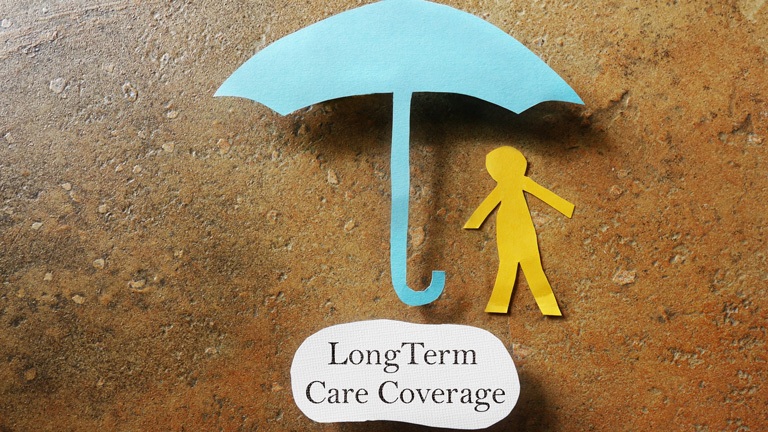Overview: The Significance of Long-term Care Insurance
It doesn’t matter if it is care for self, a family member, or some friend, long-term care is often expensive, lasting over a period of a year or more. A greater part of American people plan their retirement, will statements, and funeral, but are ignorant of the possibility of insuring for long-term care. Hence, statistics have shown that only about 10 percent of elderly people have a working long-term care insurance plan. The reason for not factoring in the insurance on long-term care often hinges on the ignorance of the possibility and the relevance of such seemingly grandiose investment.
In fact, everyone needs long-term care insurance since we can’t for sure predict the happenings of the future. Besides, according to a report from the Department of Health and Human Services, about 50% of elderly people will have developed a serious disability that requires a professional long-term care service by the time they turn 65. Most people undermine the possibility of falling sick, being involved in a serious accident, or such other events, and the result is the febrile attitude to long-term care insurance. The fact is that expense on long-term care can be so overwhelming that it would probably take a robust retirement plan to survive it!
Long-term care insurance covers the cost of eligible assistance in caring for oneself due to illness, accidents, or the effects of aging. Unlike health insurance which covers medical costs of the policyholder, long-term care insurance (LTCI) reimburses you for expenses on long-term care services — bordering on activities of daily living (ADLs), such as toileting, grooming, continence, bathing, feeding, walking about, etc– which would otherwise be burdensome to one who has a low income. Anyone can be insured at any age, although, like other insurance policies, long-term care insurance premiums increase with advancing age.

Why You Should Purchase Long-term Care Insurance?
Advances in Science has made it possible for us to recover quickly from certain disease conditions, and this factor is yet the cause of increased longevity amongst our population. You may think you don’t need long-term care insurance, as many of us erroneously think that it’s something to do with aging people. While this may be true to a limited extent, it is important to imagine increased longevity as a risk factor for long-term care demand. As you age you’re exposed to the increased possibility to develop different disease conditions, from Parkinsonism to Alzheimer’s, exposure to accidents with mild or serious consequences. These have been reasons people have required long-term care though they didn’t foresee it. It is strongly advised that you get long-term care insurance as early as you can to minimize the financial troubles that come with unforeseen circumstances.
Who Should Get a Long-term Care Insurance?
Deciding if to obtain long-term care insurance depends on one’s income, assets, and retirement plans. If your only source of income is dependent on Social Security, and you meet the requirement for government assistance, you don’t necessarily need to get long-term care insurance. But if you can afford to pay for long-term care services from your savings or assets, and yet do not want to be responsible for most of the bills if need be, then you’re apt to get insurance for it. The major problem most people are faced with is actually trying to figure out in advance whether they would need the services of a caregiver later in life, which is understandable.
Qualification for Long-term Care Insurance
Long-term Care Insurance is issued on the basis of health, provided that the policyholder had no pre-existing medical condition at the time of insuring. Individuals who wait until they are sick to get insurance will not be insured, even though they can afford exorbitant premiums. Many people suffer different ailments without their knowledge, and if you’re found to have minor cases such as hypertension, there is a chance you would be insured. However, the presence of serious medical conditions such as dementia, Alzheimer’s, liver cirrhosis, AIDS, and the like, which may require professional care, the use of wheelchairs, oxygen, or walking aids disqualifies one from getting long-term care insurance.

Cost of Long-term Care Insurance
The cost of getting long-term care insurance varies from region to region, and also across insurance providers. The factors considered in setting up the amount hinges on the age, daily benefits paid, duration of benefits, health status, type of care it covers, amongst others. According to a report in 2012, the average cost of an insurance policy with $150 benefits daily on a 55-year-old holder was approximately $2,000 yearly. This value is only an estimated average, cost varies, however, across insurers.
Buying a Long-term Care Insurance Policy
Experts agree that is never too early to purchase an insurance policy, although it can easily get too late. Many insurance companies advise getting insured as young as in one’s forties, although most people prefer to get their insurance in their fifties and sixties. While this may not pose a serious problem, advancing age comes with increased premiums even if one meets the requirements for the insurance. People above 75 years may never be insured even if there are no pre-existing medical conditions because by that age the premium value is way too expensive for the average American to afford. This is the reason it is advised that one buys long-term care insurance early enough.
Available Insurance Policies and How to Choose the Right Plan
Many different types of policies exist, each with its own peculiarities. Examples of long-term care insurance policies include group policies, joint policies, hybrid policies, state-partnership long-term insurance policies, qualified long-term care insurance policies, and the Federal Long-term Care Insurance Program. Each of these traditional insurance policies come at different premiums, although group policies tend to be quite low in premium, due to group buying power.
Before buying an insurance policy, one is advised to scout for the best premiums, benefits, and inflation protection across different Insurance companies and independent agents, rather than receiving options from only one source. Compare plans and premiums to ensure that you don’t miss out on benefits while seeking affordable premiums. A refund provision by an insurance company may be a good bargain to look out for as well.








Leave a Reply